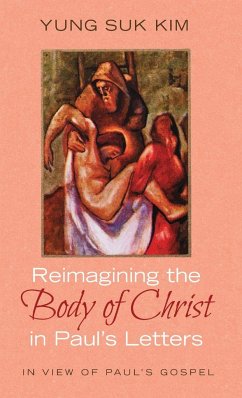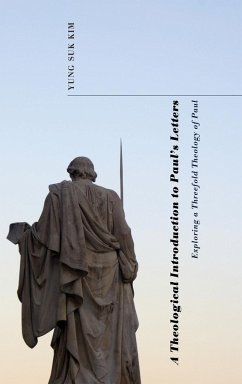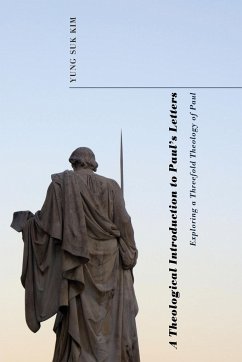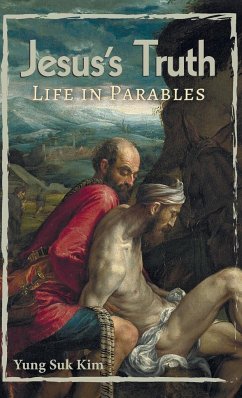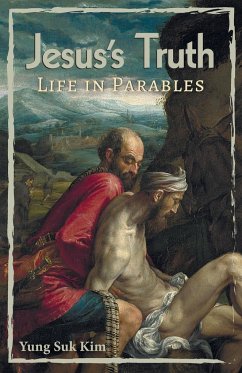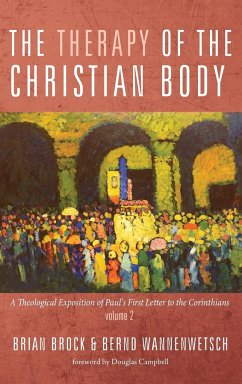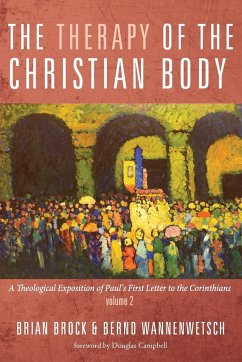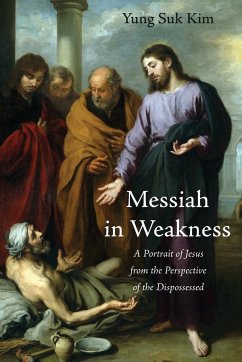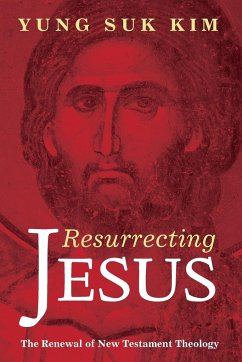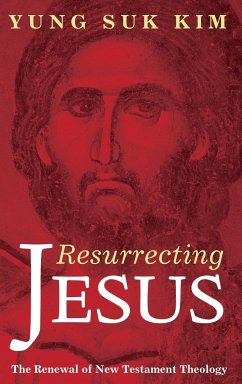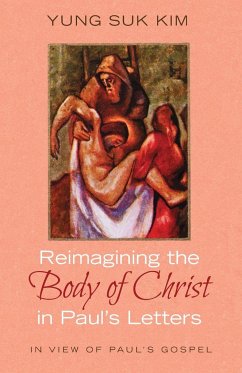
Reimagining the Body of Christ in Paul's Letters
Versandkostenfrei!
Versandfertig in 1-2 Wochen
11,99 €
inkl. MwSt.
Weitere Ausgaben:

PAYBACK Punkte
6 °P sammeln!
This book questions all familiar readings of the body of Christ in Paul's letters and helps readers rethink the context and the purpose of this phrase. Against the view that Paul's body of Christ metaphor mainly has to do with a metaphorical organism that emphasizes unity, Kim argues that the body of Christ has more to do with the embodiment of God's gospel through Christ. While Deutero-Pauline and pastoral letters use this body metaphor mainly as an organism, Paul's undisputed letters--in particular, 1 Corinthians and Romans--treat it differently, with a focus on Christlike embodiment. Reexam...
This book questions all familiar readings of the body of Christ in Paul's letters and helps readers rethink the context and the purpose of this phrase. Against the view that Paul's body of Christ metaphor mainly has to do with a metaphorical organism that emphasizes unity, Kim argues that the body of Christ has more to do with the embodiment of God's gospel through Christ. While Deutero-Pauline and pastoral letters use this body metaphor mainly as an organism, Paul's undisputed letters--in particular, 1 Corinthians and Romans--treat it differently, with a focus on Christlike embodiment. Reexamining the diverse use of the body of Christ in Paul's undisputed letters, this book argues that Paul's body of Christ metaphor has to do with the proclamation of God's gospel. ""Concisely describing how 'the body of Christ' must be reimagined as 'the Christic body,' Kim's argumentation has wide-reaching implications for those of us who fight for liberation and justice within church and society. Providing a launching point that will allow scholars and pastors to teach and model 'soft-union' in Christ while uplifting particularity in communion, Kim's interpretation of Pauline theology and ethics will enliven conversations in the classroom and the church for years to come. --Angela Parker, Assistant Professor of Biblical Studies, The Seattle School of Theology & Psychology ""Yung Suk Kim offers fresh insight into the heart of Paul's theology: the body of Christ. Interestingly, Kim challenges the reader by reconstructing Christ's body as a union in solidarity with those on the margins, especially in the hierarchical systems prevalent in the Roman imperial society and culture. No doubt, his theological reimagination can empower today's Christians to resist unity without diversity in the so-called post-truth era of Trump. This little but powerful book thus holds onto hope for embodying Paul's teaching in a more responsible manner."" --Sung Uk Lim, Assistant Professor of New Testament, College of Theology & United Graduate School of Theology, Yonsei University ""With illuminating analysis of key texts, Kim offers a concise and timely understanding of the body of Christ in Paul's letters that challenges hegemonic models and reminds us that care for the poor and pursuing justice for the weak of society are at the heart of the gospel and Christian living."" --Timothy Milinovich, Associate Professor & Chair of Theology, Director of Catholic Studies, Dominican University Yung Suk Kim is an associate professor of New Testament and Early Christianity at the Samuel DeWitt Proctor School of Theology, Virginia Union University. Kim is the author of numerous books, including Christ's Body in Corinth, Biblical Interpretation, Resurrecting Jesus, Messiah in Weakness, and Toward Decentering the New Testament.





